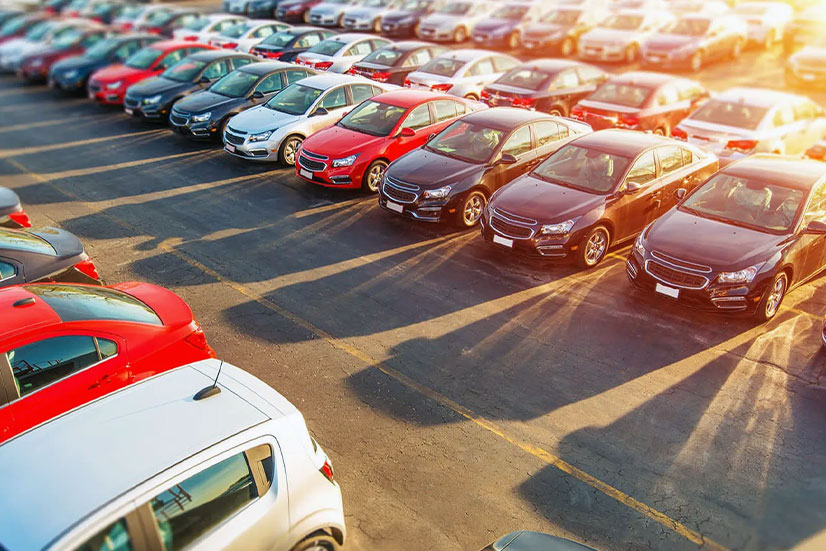
Buying a used car? Here’s what you need to know before you pay!
POST CONTENT
Buying a used car? Here’s what you need to know before you pay!
The car that you like at first glance may not be the best choice – that’s why it’s important to look in detail, compare and test as many models as possible before making a final decision. Below you can read what are the steps you should take when choosing the used car you want to buy.
Choosing the Right Car Model
hen selecting a car model, it’s essential to consider its primary purpose—whether it will be used for long-distance travel or mainly for city driving. If you are buying a car for personal use and are a beginner, consider more economical and reliable models with low maintenance costs. On the other hand, if you need a family vehicle, a larger car with a spacious trunk and enough room for a child seat and baby equipment would be a much better choice.
Another crucial factor is your budget. It’s important to choose a car that fits within your financial means and actual needs—don’t let your imagination lead you to an expensive sports model, as maintenance, fuel, and registration costs can quickly exceed your expectations.
Some key questions to ask yourself before choosing a model include:
- Do you know the mileage range at which a particular model remains cost-effective?
- Are you aware of all the strengths and weaknesses of the engine you’re selecting? Turbo gasoline engines, for example, often require an overhaul after a certain mileage.
Besides the car’s condition, you should also define your priorities:
- Is reliability, fuel efficiency, comfort, or low maintenance cost more important to you?
- Are you sure you’re buying a better car than the one you previously owned?
- Have you tested and researched enough vehicles to be confident in your choice?
If you already own a car, consider selling it before purchasing a new one—this can help you secure additional funds for a higher-quality model.
Without proper inspection, buying a used car can turn into an expensive mistake. So, don’t rush the decision—invest time in researching the model you want. If this process takes too long, consider hiring an expert like Asim Mrković, who can help you identify true quality and avoid hidden costs.
A Used Car Is Not a New One
Once you find a car you want to buy and select the right model, the first step is to question the owner and gather as much useful information as possible. Keep in mind that, in most cases, you’re buying from strangers who want to sell their vehicle at the best possible price, which means they may hide defects or even provide false information. The pictures in the ad and the description may look perfect, but the reality can be completely different. That’s why it’s essential to see the car in person before making a decision. Never buy a car without seeing it!
If you don’t know much about cars, never go alone! Sellers can easily recognize inexperienced buyers and may trick you into purchasing a vehicle with hidden issues. Bring a mechanic, an experienced friend who can assess the car’s condition, or simply hire a professional appraiser like Asim Mrković.
Key aspects to inspect include the car’s exterior and interior appearance, but most importantly, its mechanics. The first thing to check is the engine—pay attention to its appearance, the sound it makes while running, and whether there’s any smoke when starting. If something seems suspicious, there’s a high chance something is wrong.
A freshly washed engine might indicate that the seller is trying to hide oil leaks. Also, be cautious of recently repainted vehicles, as fresh paint can conceal signs of previous accidents or rust. Additionally, check the windows—if they aren’t all from the same year or manufacturer, the car may have been in a crash.
Furthermore, carefully examine the bodywork—uneven gaps between doors, the hood, and fenders may indicate poorly executed repairs. Look for welding marks and different shades of paint on individual panels, as these could suggest parts have been replaced after damage. Check the sills and fender edges, as these areas are most prone to rust.
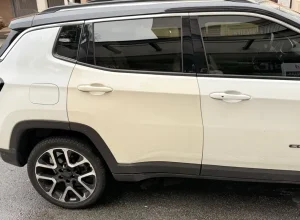
The table contains some of the questions for checking the car
| QUESTION | YES | NO |
| Does the car have an owner’s manual? | ||
| Are there major breaks in the service history or no service book at all or no electronic service record? | ||
| Is there an original key (two) missing? | ||
| Does the car have alarm or audio codes? | ||
| Is there any doubt that its mileage is not original? | ||
| Do the chassis and engine numbers match the data in the traffic and other documentation? | ||
| Are there discrepancies in any other data? |
Download the complete free checklist for checking all car parts.
What sellers often hide is the exact mileage. The mileage gives you an insight into the actual condition of the vehicle, but many dealers use tricks to reset it. If someone experienced goes with you, you will easily recognize whether the number of kilometers is real or manipulated. It is also necessary to review all the documentation of the car, including the traffic license, service book and MOT certificate.
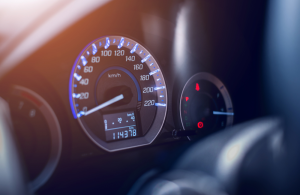
The only real way to evaluate a car is to test drive it. The test drive is a key part of the purchase – then you check how the brakes, gearbox and all important systems in the vehicle work. Don’t forget to check smaller details like heating buttons, window lifters and similar functionalities. All this can influence your decision and prevent you from buying a car with hidden problems. Remember, the key thing is the safety and soundness of the car itself.
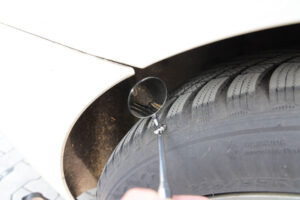
Don’t fall for low prices – fraud alarm
Sometimes the price can be a good indicator of a potential scam. If you find an offer that sounds too good to be true – it probably isn’t.
Experience of one of our clients:
“Recently I came across an ad that sounded great – 2018 Tiguan, 8000 euros below market price. My warning lights immediately came on. The seller’s strange e-mail address and his vagueness in answering questions were the first signs that something was wrong. Second, although CarVertical’s report looked clean, something told me not to believe it. And I was right.”
With a little caution and awareness, you can avoid the pitfalls and find a reliable used car. Don’t skimp on the estimate. It’s an investment that can save you a lot of money and nerves in the future. Contact expert appraiser Asim Mrkovic and avoid potential problems. In this text, read what are the qualities of a quality appraiser and how to get one.
More Posts

Whether it was a small fender-bender or a serious

You parked your car, and when you came back,
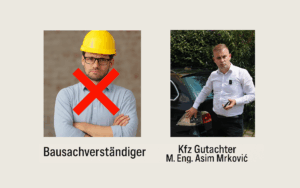
Wondering why your search for a “building surveyor in
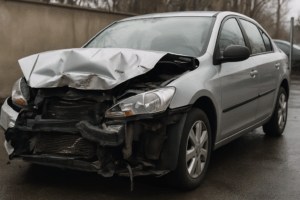
From the perspective of an independent Kfz appraiser –
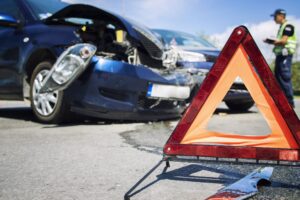
More and more drivers travel from Germany to other
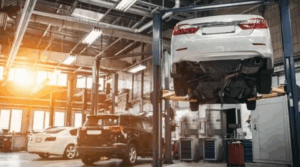
The question of where to service your car often

When you’re involved in a traffic accident, beyond the

Life often writes unpredictable stories, and one of the

The job of a damage assessor is often dynamic

When a traffic accident occurs, one of the key